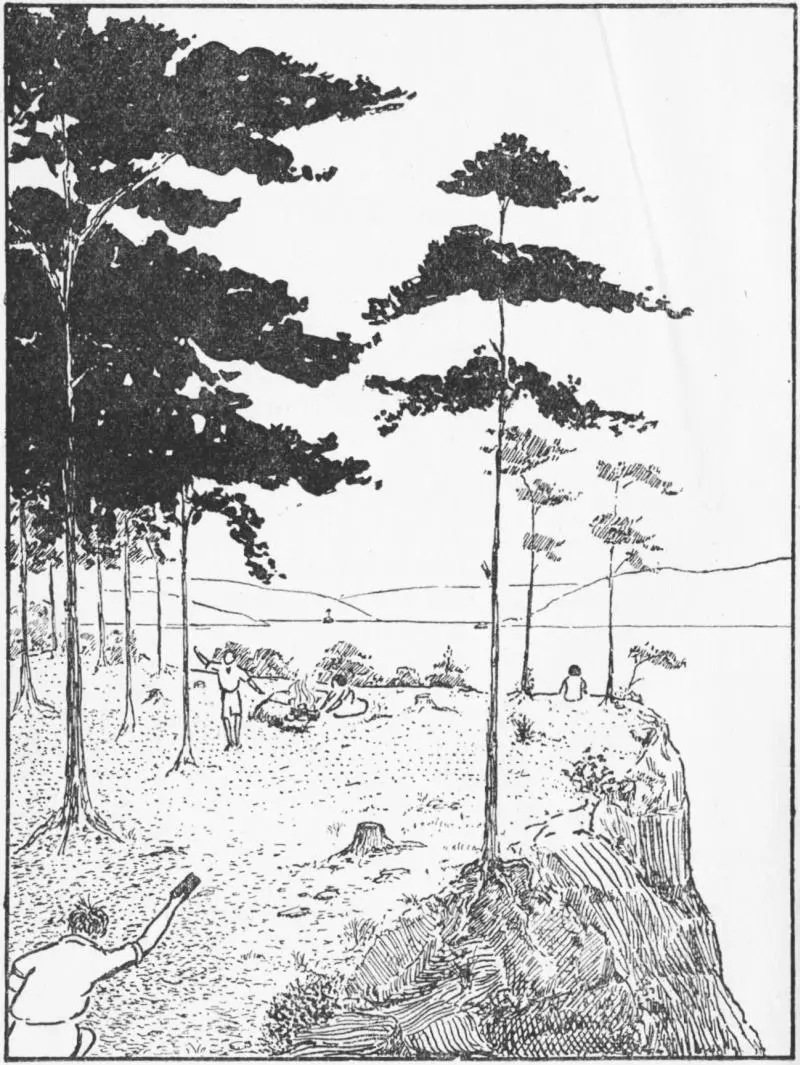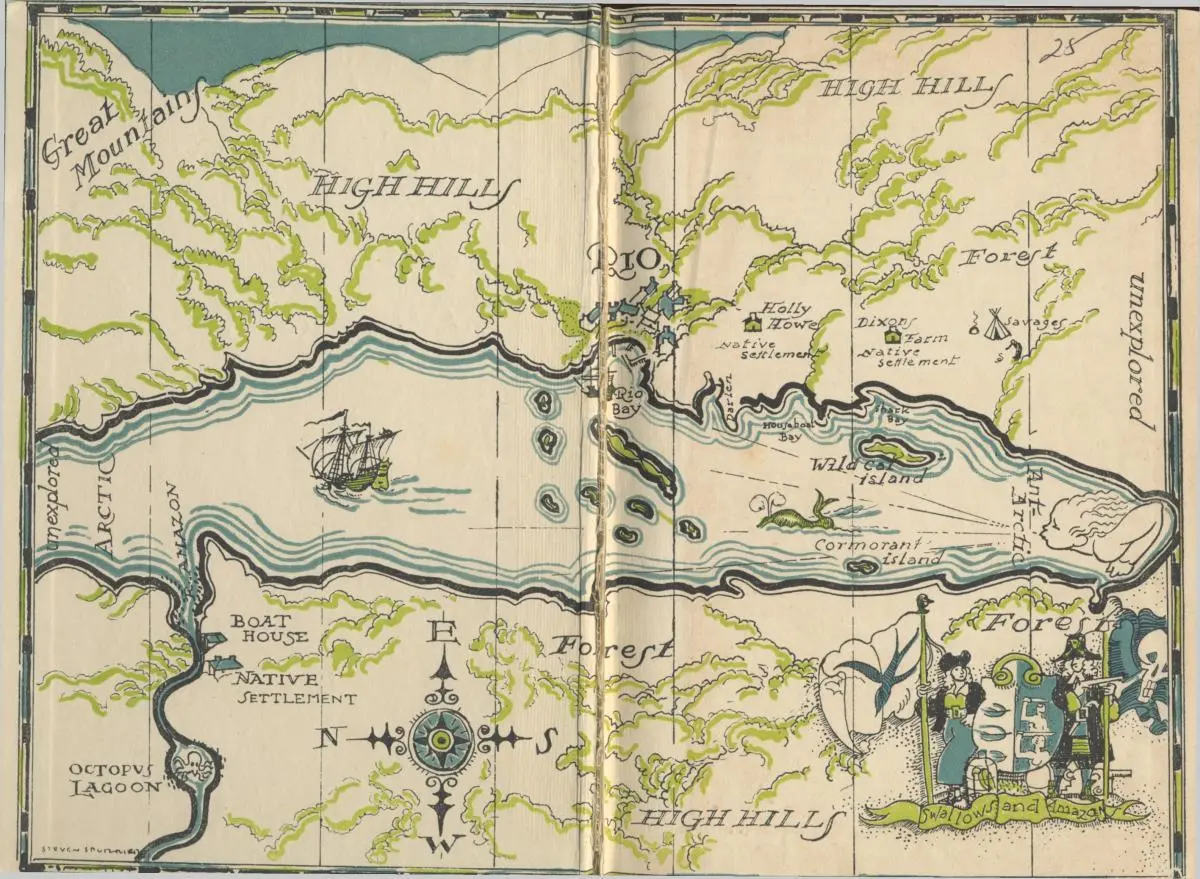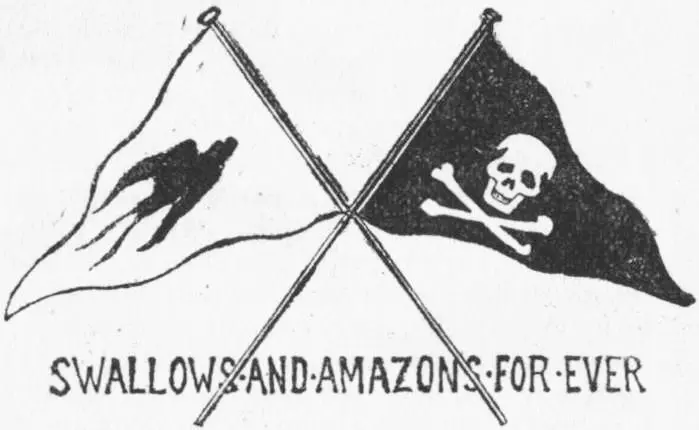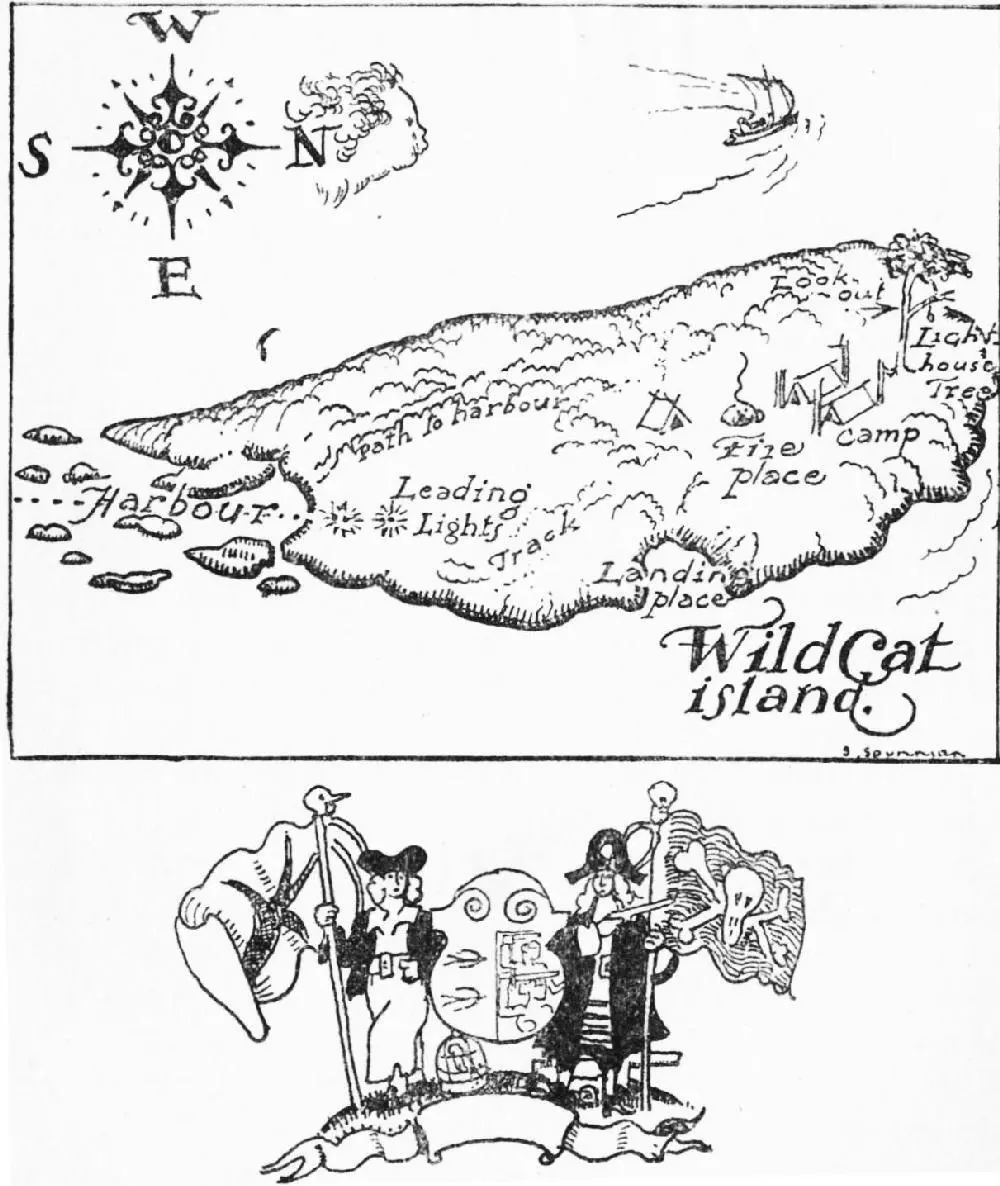Arthur Ransome
Swallows and Amazons (Complete Series)
ALL 12 Adventure Novels: Swallowdale, Peter Duck, Winter Holiday, Coot Club, Pigeon Post, Secret Water…
e-artnow, 2021
Contact: info@e-artnow.org
EAN 4066338128911
Swallows and Amazons
Swallowdale
Peter Duck
Winter Holiday
Coot Club
Pigeon Post
We Didn't Mean To Go To Sea
Secret Water
The Big Six
Missee Lee
The Picts and the Martyrs: Or Not Welcome At All
Great Northern?
Table of Contents
Chapter I. The Peak in Darien
Chapter II. Making Ready
Chapter III. The Voyage to the Island
Chapter IV. The Hidden Harbour
Chapter V. First Night on the Island
Chapter VI. Island Life
Chapter VII. More Island Life
Chapter VIII. Skull and Cross-Bones
Chapter IX. The Arrow With the Green Feather
Chapter X. The Parley
Chapter XI. In Alliance
Chapter XII. Leading Lights
Chapter XIII. The Charcoal-Burners
Chapter XIV. The Letter From Captain Flint
Chapter XV. Captain John Visits Captain Flint
Chapter XVI. The Birthday Party
Chapter XVII. A Fair Wind
Chapter XVIII. Robinson Crusoe and Man Friday
Chapter XIX. The Amazon River
Chapter XX. Titty Alone
Chapter XXI. Swallows in the Dark
Chapter XXII. The White Flag
Chapter XXIII. Taking Breath
Chapter XXIV. Grave News From Houseboat Bay
Chapter XXV. Captain Flint Gets the Black Spot
Chapter XXVI. He Makes Peace and Declares War
Chapter XXVII. The Battle in Houseboat Bay
Chapter XXVIII. The Treasure on Cormorant Island
Chapter XXIX. Two Sorts of Fish
Chapter XXX. The Storm
Chapter XXXI. The Sailors’ Return
 DESPATCHES
DESPATCHES


TO
THE SIX FOR WHOM IT WAS WRITTEN
IN EXCHANGE FOR
A PAIR OF SLIPPERS

Chapter I.
The Peak in Darien
Table of Contents
“Or like stout Cortez, when with eagle eyes,
He stared at the Pacific—and all his men
Looked at each other with a wild surmise—
Silent, upon a peak in Darien.”
Roger, aged seven, and no longer the youngest of the family, ran in wide zigzags, to and fro, across the steep field that sloped up from the lake to Holly Howe, the farm where they were staying for part of the summer holidays. He ran until he nearly reached the hedge by the footpath, then turned and ran until he nearly reached the hedge on the other side of the field. Then he turned and crossed the field again. Each crossing of the field brought him nearer to the farm. The wind was against him, and he was tacking up against it to the farm, where at the gate his patient mother was awaiting him. He could not run straight against the wind because he was a sailing vessel, a tea-clipper, the Cutty Sark. His elder brother John had said only that morning that steamships were just engines in tin boxes. Sail was the thing, and so, though it took rather longer, Roger made his way up the field in broad tacks.
When he came near his mother, he saw that she had in her hand a red envelope and a small piece of white paper, a telegram. He knew at once what it was. For a moment he was tempted to run straight to her. He knew that telegrams came only from his father, and that this one must be the answer to a letter from his mother, and letters from John, Susan, Titty, and himself, all asking the same thing, but asking it in different ways. His own letter had been very short. “Please, daddy, may I, too? With love. Roger.” Titty’s had been much longer, longer even than John’s. Susan, though she was older than Titty, had not written a letter of her own. She had put her name with John’s at the end of his, so that these two had sent one letter between them. Mother’s letter had been the longest of all, but Roger did not know what she had said in it. All the letters had gone together, a very long way, to his father, whose ship was at Malta but under orders for Hong-Kong. And there, in his mother’s hand, was the red envelope that had brought the answer. For a moment Roger wanted to run straight to her. But sail was the thing, not steam, so he tacked on, heading, perhaps, a little closer to the wind. At last he headed straight into the wind, moved slower and slower, came to a stop at his mother’s side, began to move backwards, and presently brought up with a little jerk, anchored, and in harbour.
“Is it the answer?” he panted, out of breath after all that beating up against the wind. “Does he say Yes?”
Mother smiled, and read the telegram aloud:
BETTER DROWNED THAN DUFFERS IF NOT DUFFERS WONT DROWN.
“Does that mean Yes?” asked Roger.
“I think so.”
“Does it mean me, too?”
“Yes, if John and Susan will take you, and if you promise to do whatever they tell you.”
“Hurrah,” shouted Roger, and capered about, forgetting for a moment that he was a ship, and anchored in a quiet harbour.
“Where are the others?” asked mother.
“In Darien,” said Roger.
“Where?”
“On the peak, you know. Titty called it that. We can see the island from there.”
Below the farm at Holly Howe the field sloped steeply to a little bay where there was a boathouse and a jetty. But there was little of the lake to be seen, because on each side of the bay there were high promontories. A path ran down the field from the farm to the boathouse. Half-way down the field there was a gate, and from that gate another path ran into the pinewoods that covered the southern and higher promontory. The path soon faded away into nothing, but on the very evening of their first coming, a fortnight before, the children had found their way through the trees to the far end of the promontory, where it dropped, like a cliff, into the lake. From the top of it they had looked out over the broad sheet of water winding away among the low hills to the south and winding away into the hills high to the north, where they could not see so much of it. And it was then, when they first stood on the cliff and looked out over mile upon mile of water, that Titty had given the place its name. She had heard the sonnet read aloud at school, and forgotten everything in it except the picture of the explorers looking at the Pacific Ocean for the first time. She had called the promontory Darien. On the highest point of it they had made their camping place, and there Roger had left them when he had come through the trees to the field and, seeing his mother at the gate, had begun his voyage home.
“Would you like to take them the answer?”
“And tell them it’s Yes for me too?”
“Yes. You must give the telegram to John. It’s he who has to see that you are not duffers.”
Mother put the telegram in its red envelope, and gave it to Roger. She kissed him, anchored as he was, and said, “Supper at half-past seven, and not a minute later, and mind you don’t wake Vicky when you come in.”
Читать дальше

 DESPATCHES
DESPATCHES













